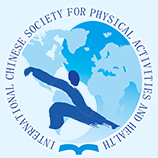Document Type
Abstract
Keywords
physical exercise, self-confidence, resilience, life satisfaction, chain mediation effect, Chinese primary students
Publication Date
2-2023
Abstract
Life satisfaction is an overall cognitive evaluation of an individual's living condition for the most of time or over a certain period of time according to the standard of one’s own choice. It is an important psychological variable in the developmental stage of children and adolescents. Some studies had shown that life satisfaction was closely related to children's and adolescents' mental health levels, including their emotional and behavioral conditions. However, the Blue Book for Children: China Children's Development Report (2020) published by China Children's Center stated that Chinese students did not fare well in terms of life satisfaction. Previous studies had indicated that physical exercise was an important factor that had a positive effect on life satisfaction, as well as on self-confidence and resilience. Also, there is a correlation between self-confidence, resilience, and life satisfaction. Nonetheless, few studies have researched the role of self-confidence and resilience in the impact of physical exercise on the life satisfaction of primary school students. To explore the mediating role of self-confidence and resilience between physical exercise and life satisfaction, in order to provide a theoretical basis and practical guidance for how to effectively promote life satisfaction and psychological well-being of primary school students in the practice of physical exercise. Group measurements of 1009 students (519 boys and 490 girls; 576 fifth graders and 433 sixth graders) are carried out by using the Scale of Physical Exercise Level, Children and Adolescent Self-Confidence Scale, Children and Adolescent Life Satisfaction Scale, and Adolescent Resilience Scale, and Structural Equation Model and Bootstrap are used to analyze the mediating effect of self-confidence and resilience. The results reveal that there is a positive correlation between physical exercise and life satisfaction (r=0.218), but the effect on life satisfaction is not significant (P=0.516); the indirect effect of physical exercise on life satisfaction consists of two paths: physical exercise to self-confidence to life satisfaction (95% CI: 0.128,0.267); physical exercise to self-confidence to resilience to life satisfaction (95% CI:0.109,0.209). It is concluded that physical exercise has an indirect but significant effect on primary school students' life satisfaction--the independent mediating effect of self-confidence and the chain mediation effect of self-confidence and resilience. The study further confirms that physical exercise can promote students' self-confidence levels and the formation of tenacious psychological quality, thus improving their life satisfaction levels. Therefore, society, schools and families should pay close attention to the positive effects of physical exercise on primary school students’ emotional and behavioral conditions.
DOI
https://doi.org/10.18122/ijpah.020119.boisestate
Recommended Citation
Li, Huan-Yu; Shen, Bo; Yan, Jun; Chen, Ai-Guo; and Zhang, Ting
(2023)
"Effect of Physical Exercise on Life Satisfaction of Chinese Primary Students: The Chain Mediating Role of Self-Confidence and Resilience,"
International Journal of Physical Activity and Health: Vol. 2:
Iss.
1, Article 19.
DOI: https://doi.org/10.18122/ijpah.020119.boisestate
Available at:
https://scholarworks.boisestate.edu/ijpah/vol2/iss1/19
Included in
Exercise Science Commons, Health and Physical Education Commons, Public Health Commons, Sports Studies Commons


